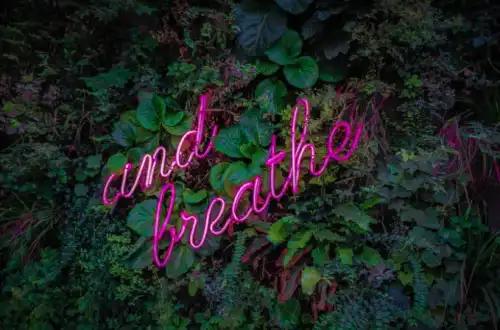How to Deal with Anxiety in Just 3 Breaths
Curated from: pickthebrain.com
Ideas, facts & insights covering these topics:
3 ideas
·2.01K reads
14
Explore the World's Best Ideas
Join today and uncover 100+ curated journeys from 50+ topics. Unlock access to our mobile app with extensive features.
Anxiety Management
Anxiety is a common daily struggle for many. And one of the main ways of dealing with anxiety is to medicate.
But modern research on ancient techniques like breath control indicates they can decrease anxiety like medication but without the side effects, and can even help to relieve stress and tension in the body or decrease hyper mental activity.
187
750 reads
Anxiety’s And Your Breath
Your emotions alter your breathing and vice versa. Taking slow, deep and mindful breaths can trick your brain into releasing calming hormones to combat the feelings of anxiousness.
173
666 reads
A Breathing Technique
- Imagine your body as a balloon that slowly inflates and slowly deflates. Keep this image in your mind to get the maximum benefits from this breathing technique.
- Close your eyes and breathe in slowly and deeply through your nose.
- Hold your breath for 3 seconds.
- Slowly exhale through your mouth like you’re blowing a thin wisp of air until you have no more air in your lungs to breathe out.
- Repeat as many times as needed to calm yourself down.
181
595 reads
IDEAS CURATED BY
Laila 's ideas are part of this journey:
Learn more about health with this collection
Importance of rest and recovery
Effective workout routines
Proper nutrition for muscle building
Related collections
Similar ideas
7 ideas
The Profound Power of Breathing
elemental.medium.com
8 ideas
How to Release Anger: Tips for Letting Go
healthline.com
4 ideas
Read & Learn
20x Faster
without
deepstash
with
deepstash
with
deepstash
Personalized microlearning
—
100+ Learning Journeys
—
Access to 200,000+ ideas
—
Access to the mobile app
—
Unlimited idea saving
—
—
Unlimited history
—
—
Unlimited listening to ideas
—
—
Downloading & offline access
—
—
Supercharge your mind with one idea per day
Enter your email and spend 1 minute every day to learn something new.
I agree to receive email updates



